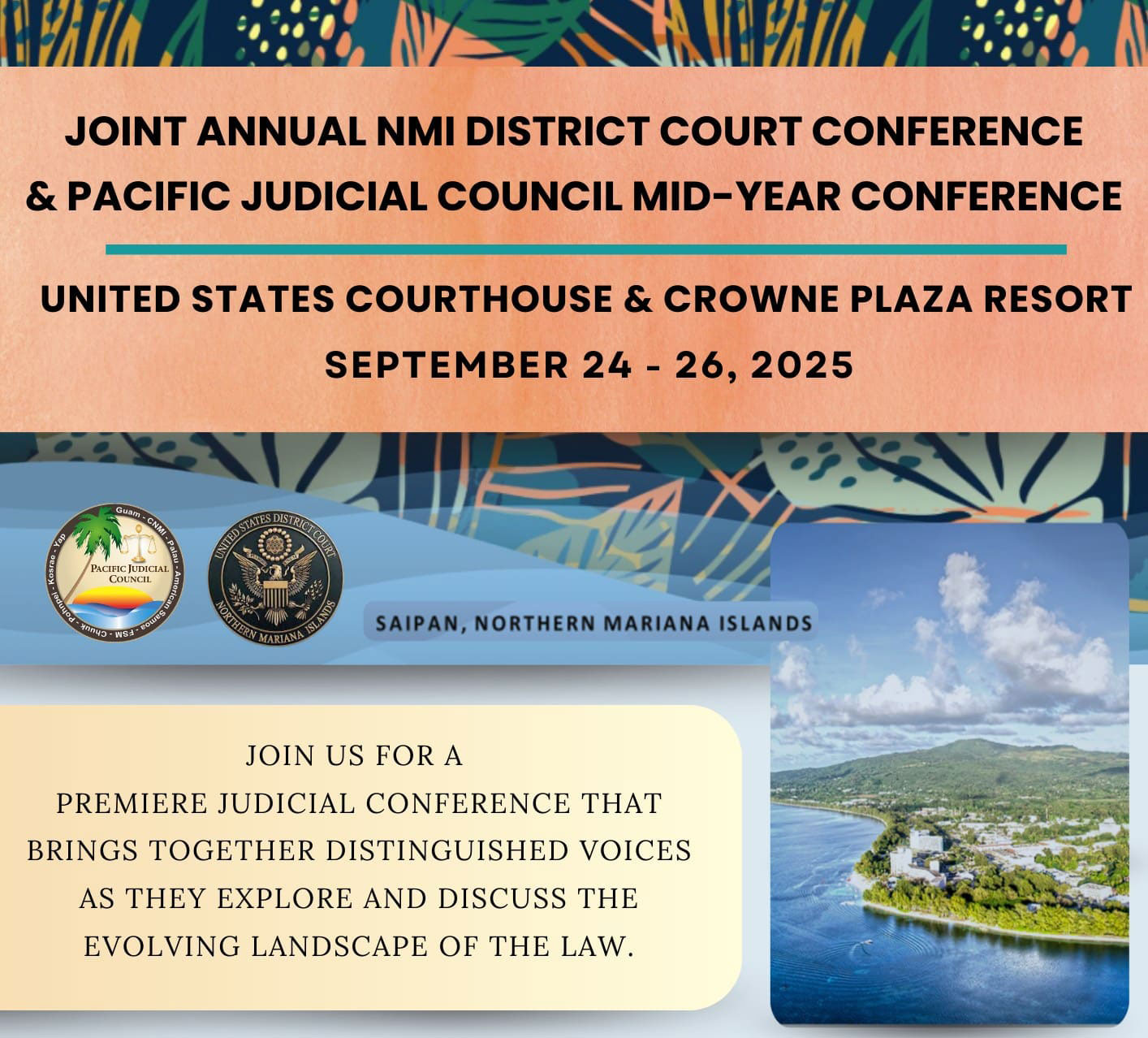Education Committee

Judge Maria T. Cenzon
Education Committee Chair
PJC Education Committee Member Listing
Scroll the table left to right
| MEMBER NAME | POSITION | JURISDICTION |
|---|---|---|
| Chief Justice Jayson Robert | Member | Chuuk State Supreme Court |
| Associate Justice Kerio D. Walliby | Member | Chuuk State Supreme Court |
| Acting Chief Justice Beauleen Carl-Worswick | Member | FSM Supreme Court |
| Magistrate Judge Michael J. Bordallo | Member | District Court of Guam |
| Chief Judge Frances Tydingco-Gatewood | Member | District Court of Guam |
| Judge Maria T. Cenzon | Chair | Superior Court of Guam |
| Judge Elyze M. Iriarte | Member | Superior Court of Guam |
| Presiding Judge Alberto C. Lamorena III | Treasurer | Superior Court of Guam |
| Associate Justice Katherine A. Maraman | Member | Supreme Court of Guam |
| Chief Justice Robert J. Torres | President | Supreme Court of Guam |
| Acting Chief Justice Edmond Salik | Member | Kosrae State Court |
| Justice John A. Manglona | Member | NMI Supreme Court |
| Judge Teresa Kim-Tenorio | Member | NMI Superior Court |
| Magistrate Judge Heather Kennedy | Member | U.S. District Court for the NMI |
| Chief Judge Ramona V. Manglona | Member | U.S. District Court for the NMI |
| Chief Justice Oldiais Ngiraikelau | Member | Republic of Palau Supreme Court |
| Presiding Justice Kathleen M. Salii | Member | Republic of Palau Supreme Court |
| Chief Justice Nelson A. Joseph | Member | Pohnpei State Supreme Court |
| Chief Justice Cyprian J. Manmaw | Member | Yap State Court |
| MEMBER NAME | TITLE |
|---|---|
| Russ Mathieson | Education Specialist Office of the Circuit Executive |
| Jessica Perez-Jackson | Chamber Administrator for Chief Justice Robert J. Torres |
| Andrew Jay M. Gimenez | Special Projects Coordinator, Supreme Court of Guam |
| Brianne G. Balbas | Chamber Clerk for Judge Maria T. Cenzon |
Scroll the table left to right
Pacific Islands Committee
About the Pacific Islands Committee
The Judicial Council of the Ninth Circuit established the Pacific Islands Committee to fulfill the oversight responsibilities of the Council and of the Judicial Conference of the United States with respect to the judiciaries of the American territories in the Pacific (American Samoa, Guam, and the Commonwealth of the Northern Mariana Islands) and of the former Trust Territories: the Federated States of Micronesia, the Republic of the Marshall Islands, and the Republic of Palau. The United States assisted with the formation of the judiciaries in these islands and the Pacific Islands Committee is charged with monitoring their judicial development. Traditionally, the courts of the Pacific administered justice with modest levels of resources.
The specific responsibilities of the Pacific Islands Committee include assisting in the development and provision of continuing judicial education and court professional training, and overall improvement of the administration of justice in the courts.




